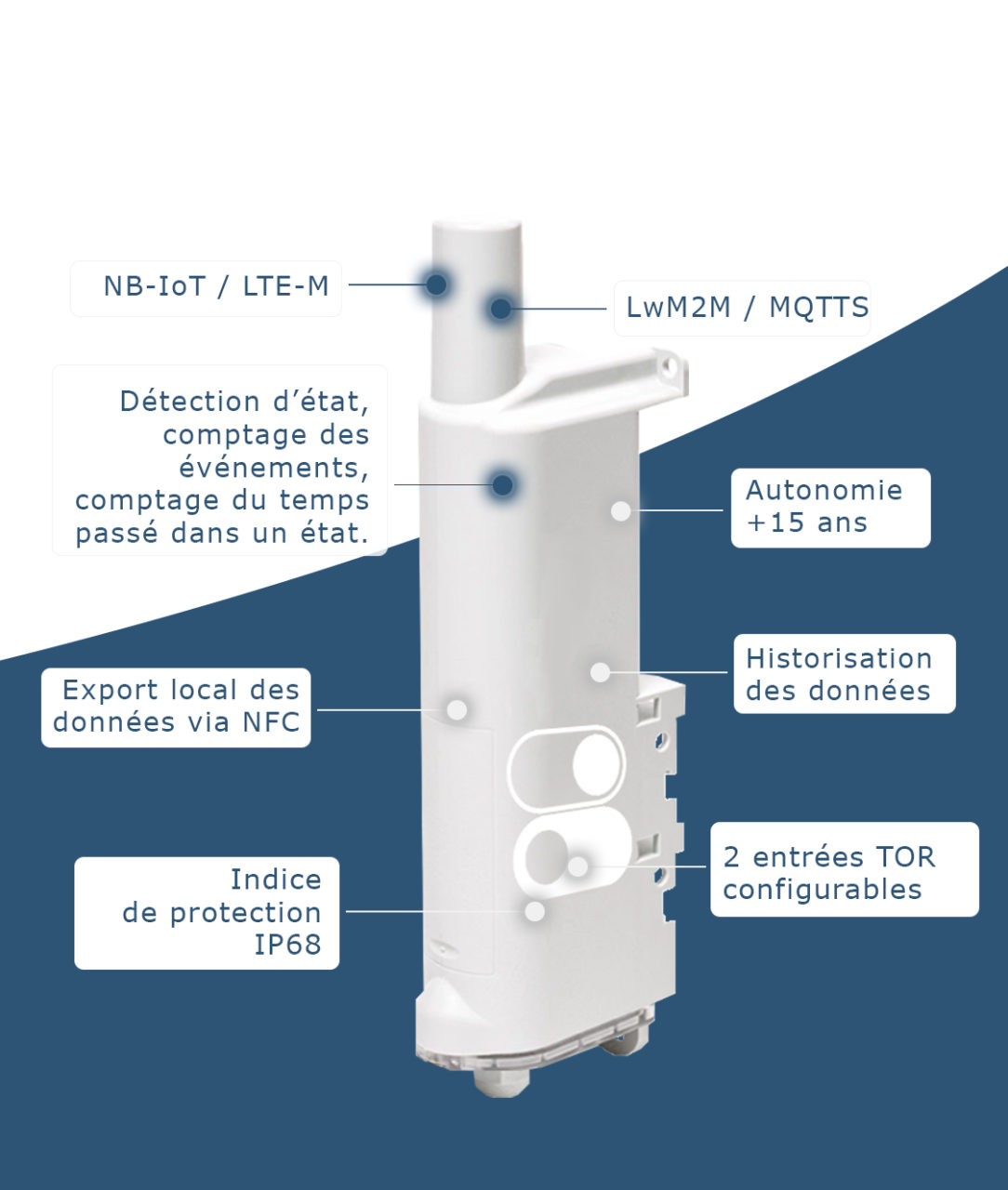The Internet of Things (IoT) continues to grow rapidly and with it the demand for reliable, long-range connectivity for smart devices. That’s where cellular LPWAN (Low Power Wide Area Network) comes in. In this article, we’ll explore what cellular LPWAN is and how it’s being used in the IoT to enable innovative, connected applications on a massive scale.
What is cellular LPWAN?
Cellular LPWAN is a wireless network technology that enables smart object connectivity over large geographical areas, using existing cellular networks. Unlike traditional cell phone networks designed for smartphones, cellular LPWAN is specifically optimized for IoT devices requiring low power consumption and low-speed data transmission.
How does cellular LPWAN work?
Cellular LPWAN uses radio frequencies dedicated to IoT devices. Telecom operators allocate specific resources for LPWAN communications, enabling robust and extensive connectivity. Cellular LPWAN technology offers long-range coverage, meaning devices can be deployed over vast territories without the need for costly additional infrastructure.
Advantages of cellular LPWAN in the IoT

Extended coverage
Cellular LPWAN uses existing cellular infrastructures, offering near-universal coverage. This enables IoT devices to operate efficiently even in rural and remote areas.

Low energy consumption
IoT devices connected via cellular LPWAN are designed for low-power operation, which extends the battery life of the connected devices.

Large-scale connectivity
Cellular LPWAN enables a large number of IoT devices to be connected simultaneously, making it an ideal solution for massive deployments and applications requiring large-scale connectivity.

Enhanced safety
The cellular networks used by cellular LPWAN offer high levels of security, guaranteeing the confidentiality of data exchanged between IoT devices and management platforms.
What are the cellular IoT technologies?
Cellular technologies for the IoT include NB-IoT and LTE-M (LTE Cat-M1). These two technologies have been standardised by 3GPP.
- NB-IoT (Narrowband IoT): This is an LPWAN (Low Power Wide Area Network) technology based on existing cellular networks. NB-IoT is designed for IoT applications requiring low power consumption, long battery life and low-speed connectivity. It offers excellent signal penetration, making it suitable for applications inside buildings or in underground areas.
- LTE-M (Long Term Evolution for Machines): Also based on LTE (Long Term Evolution) cellular networks, LTE-M is an LPWAN technology that offers higher data rates than NB-IoT while maintaining low power consumption. LTE-M enables bidirectional connectivity, making it suitable for IoT applications requiring real-time communications, such as vehicle tracking and security systems.
These cellular technologies offer robust, scalable connectivity for large-scale IoT. It’s important to note that the choice between NB-IoT, LTE-M and other LPWAN options depends on the specific requirements of each IoT application. Some use cases may require low power consumption and long-range connectivity, while others may require higher data rates and bidirectional connectivity. Companies and developers need to carefully assess their needs before choosing the LPWAN technology best suited to their application.
15/06/2023
20 years
expertise to support you, from the diagnosis to the implementation of your solution




